#hackeryou
Explore tagged Tumblr posts
Text
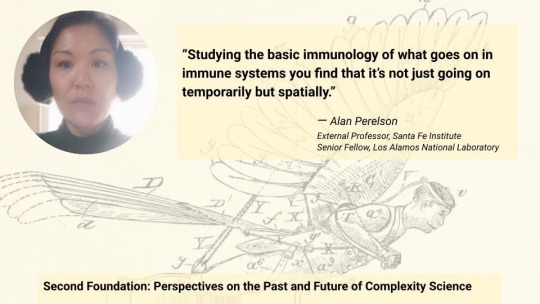
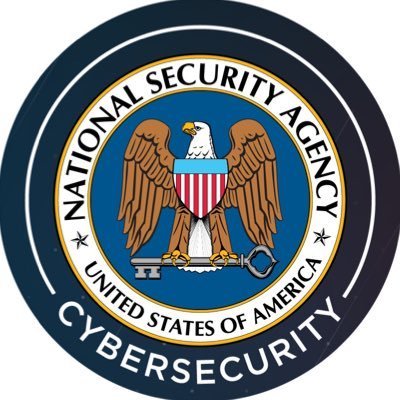
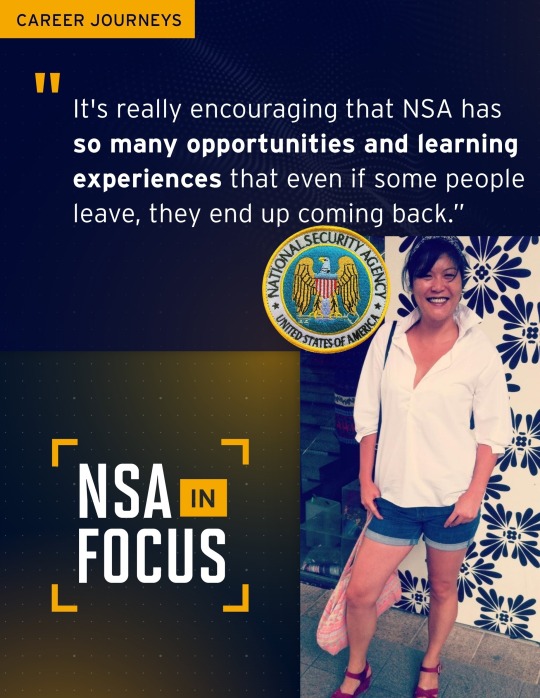
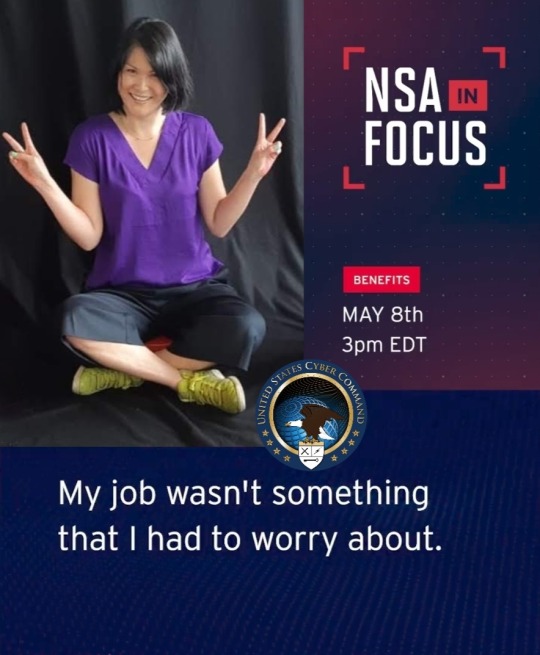
youtube
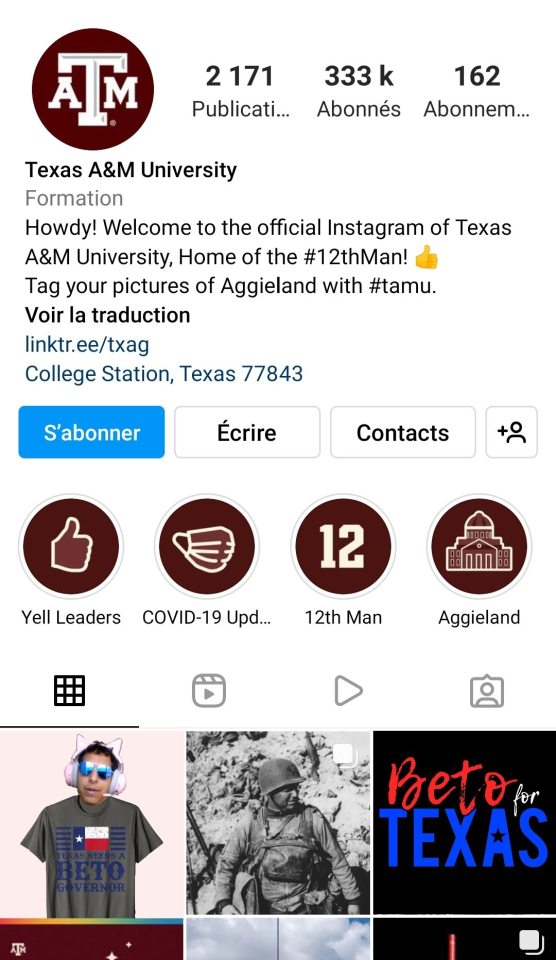
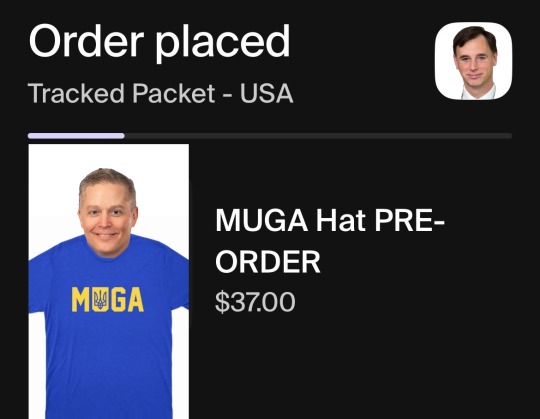
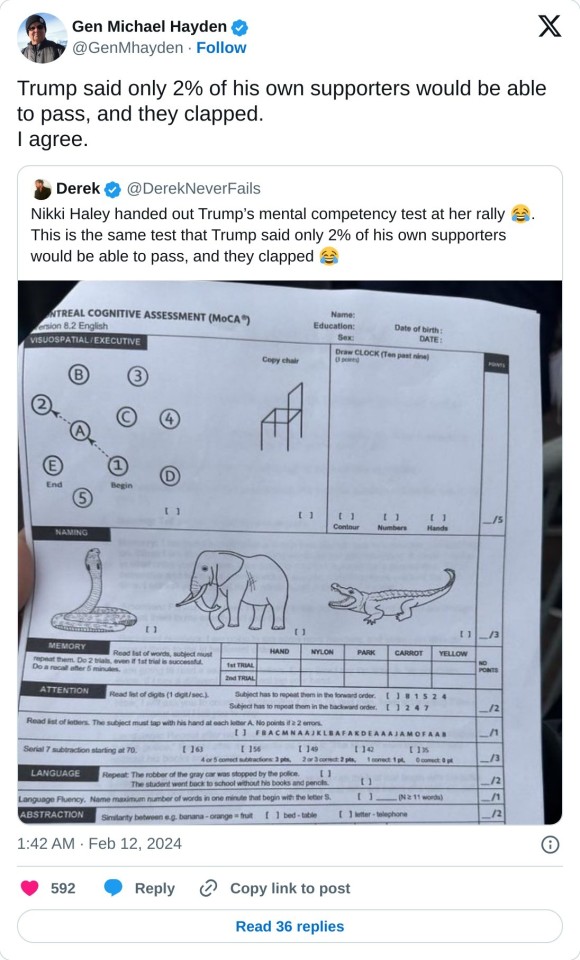
youtube






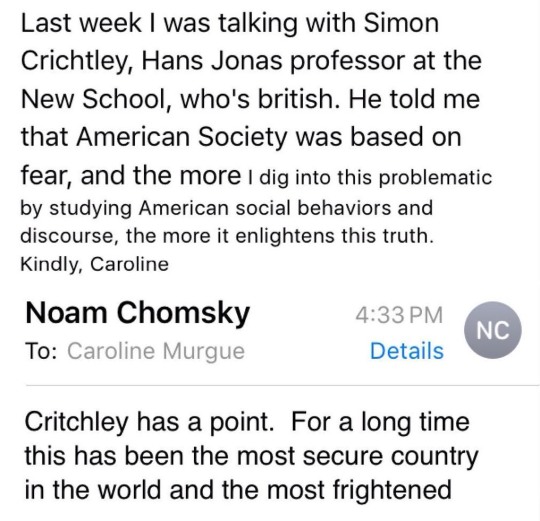

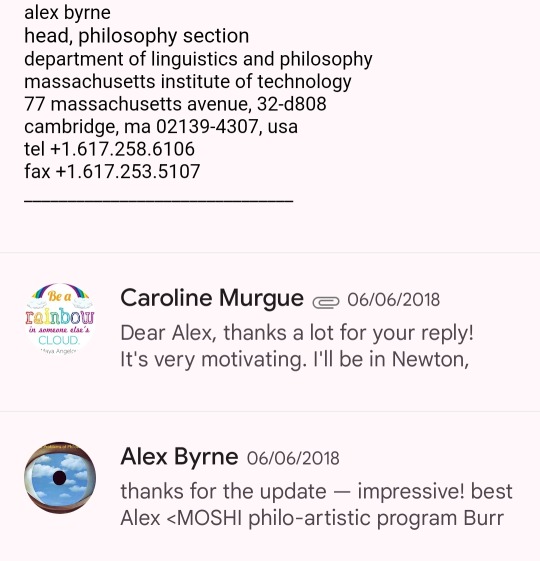
To all the haters prone to cancel culture, who write open letters for naming and shaming, with the hope to become insignificant internet celebrities inside their echo chambers of gross losers' community #hackeryou?howcrassur!goforaruninsteadofpromotingurdysfunctionaluselessegotistveilidntwkweakprotocol).
We're awake and better equipped than your fat bigorthin ill bodies that drown your ignorant brains into pathetic social attitudes reflected into poor technical skills. You have no interest for users security, as you're just egotist insecure individuals, who spend time to spread out your shitty private intimate information on social media. Your main driver is to be seen (and famous), and accepted into groups of like-minded dumb sickos, who validate your weaknesses, that you promote as rebellious strengths, which are just pathological. You fool yourself with immature behaviors, as you lack the knowledge to make a real difference in the world you hate, but you fully embrace.
We recommend to get a test for diabetes-2*, if you want to survive inside the bullshit created by your pitiful egocentric self, that would remain invisible if you couldn't bash those who can think for themselves, and who are obviously not you. You need us to exist and fill your empty life with jealousy, but we never needed you to keep our good vibes. To all the parasites:

You have zero talent unlike my

youtube
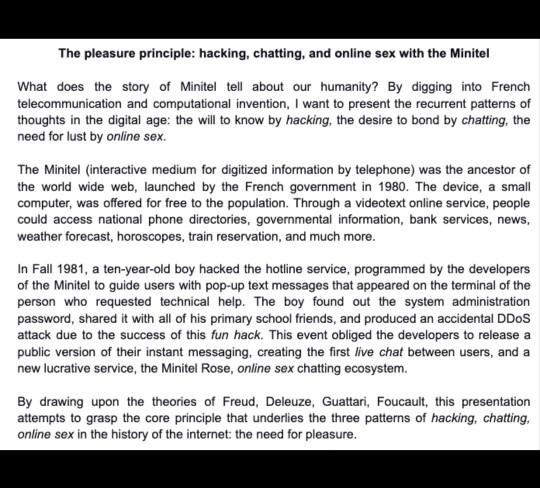

0 notes
Text
Christmas short imagine - Vinnie Hacker
You were spending your first Christmas away from your family because of the pandemic and so was Vinnie, so even when you weren't dating that long, only for two months, you decided to spend it together in the house where he was living with other guys. Fortunately, everyone else went to spend some time with family or close friends and their families, so you could spend time only together. Vinnie promised to do a live video on Instagram while you two will decorate the tree on Christmas Eve so he turned it on and started to talk. You were only wearing his big Christmas sweater and underwear as you walked in front of him to set up the lights and he was that amazed with you, that he stopped talking and just was watching you for few seconds, completely forgetting more than a hundred thousand people watching him. That was the moment when he fell in love with you and couldn't stop himself from imagining your future together.

#vinnie hacker imagine#vinnie hacker#vinnie hacker imagines#vinnie hacker x reader#x reader#short imagine#christmas imagine
213 notes
·
View notes
Text
L'actionnariat salarié se rapproche d'un moment d'évasion au Canada
L’actionnariat salarié se rapproche d’un moment d’évasion au Canada
À seulement 35 ans, Heather Payne songe déjà à la succession. Le fondateur et chef de la direction du Juno College of Technology de Toronto – anciennement connu sous le nom de HackerYou, qui a bâti sa réputation sur les camps d’entraînement de codage – ne peut s’empêcher de s’interroger sur les perspectives à long terme de l’entreprise. Les options typiques de succession – comme vendre à un…

View On WordPress
#canada#confiance#ellidon#employé#États-Unis#la possession#la société#Oakville#Ottawa#Statistique Canada#Succession
0 notes
Text
Career Change
Hi, I am 31 years old right now and i have just had experience in manufacturing as of now. i want to get into coding and i have learnt the python basics. i just wanted to ask you guys what would be the best way to do this? are coding bootcamps like brainstaion, hackeryou, lighthouse labs worth it as they claim to help find jobs too? any advice would be really helpful. Thank You!
Go to the article
0 notes
Text
Ross the robot is the city’s best legal mind
Three years ago, a group of U of T alumni created Ross, an AI assistant that helps lawyers find legal precedents for their cases. We talked to co-founder Jimoh Ovbiagele, who heads Ross North, the company’s new AI lab in Toronto
How did you get interested in AI? I was at the University of Texas, and I always thought I’d go into the car industry. Then I saw Watson beat Ken Jennings on Jeopardy! and it changed the course of my life. I transferred to U of T to study machine learning.
Later that year, you worked with the Y Combinator accelerator in Silicon Valley. Tell us what that is and what that was like. Every year, thousands of start-ups pitch to Y Combinator. They accept about three per cent. It was scary. The people we pitched had sold companies for $1 billion. But we got accepted. We moved into a small bungalow in Mountain View, California, and had a small salary that we used to buy ramen. Once a week, we went to this pho place—that was luxurious for us. During the program, we had dinners with entrepreneurs like Peter Thiel and had sessions with founders like us. It culminated with Demo Day, the biggest start-up event in the world, where we pitched our company to investors from all around the globe. We raised a few million dollars within a month.
So how does Ross work? If you’re a lawyer, and a client comes to you and says, “I want to file for bankruptcy. Can I get my debts and student loans forgiven?” Traditionally, you’d go on a legal research program like LexusNexus, type in keywords and comb through thousands of results, some of which are 30 pages long. With Ross, you ask your question in natural language. It analyzes the questions, then goes through the entire body of law to find precise answers.
How long does that take? On average, a few seconds. One of our customers tested it against himself. He asked a question, used his traditional research methods and, 10 hours later, found the answer. Ross found it in four seconds. That’s nine hours, 59 minutes and 56 seconds saved. The average attorney charges $300 an hour, so the potential savings passed on to the client is $3,000.
If a lawyer can make $3,000, why would they want to save that time? Clients have started pushing back against fees like these. Big companies have said they’d stop paying for legal research hours. So that time, which used to be a huge profit, became a huge cost.
How do you teach Ross new areas of the law? Trial and error. We show Ross questions and the answers we expect it to bring back. It finds its own answers, compares them to ours, and then adjusts. After doing that hundreds of thousands of times, it can reliably find answers to questions it’s never seen before. It took months to teach Ross
how to read law, but now
it can pick up expertise almost instantly.
Ross’s HQ is in Silicon Valley, but you just opened up a 10-person AI research lab in Toronto. Why? It was a no-brainer. The best people in deep learning are here. Toronto is also the best place to access the global talent pool, especially after Trump came into office. I’ve interviewed dozens of really smart engineers, and what I kept hearing was, “I really want to work for you. Can I work from Toronto?”
The Incredible Rise of Tech
We have hungry entrepreneurs, deep-pocketed investors, next-level start-ups and an infinite supply of brilliant ideas
Toronto’s top entrepreneurs on start-up stereotypes, wild investor stories and who they admire most
Figure 1, OpenCare and other apps that are taking telehealth into the future
At U of T's Creative Destruction Lab, tech wizards are banking on the quantum future
A Q&A with Julielynn Wong, a doctor who 3-D prints medical supplies in remote rural areas, in war zones and even in space
Inside the Deloitte Greenhouse, featuring an adorable AI robot, VR headsets and 3D printers
Five ex–RIM staffers turned tech tycoons
HackerYou, Lighthouse Labs and Bitmaker are pumping out tech geniuses
Inside Thalmic Labs's secret wearables warehouse
Everything you need to know about neuroinformatics
Huda Idrees, Candice Faktor and three other women rocking the tech sector
How Stratford, a town known for staging Shakespeare, became a hub for self-driving cars
Geoffrey Hinton and the Vector Institute are helping to make Toronto the AI capital of the world
Uber's Raquel Urtasun is revolutionizing the automobile at U of T
The lowdown on Okta, Slack, Amazon and Thomson Reuters's new digs
A Q&A with Toronto’s chief innovation advocate Michelle Holland
Why a bunch of Scandinavian start-up founders spent a week touring Toronto
Getting from Toronto to Waterloo is about to get much easier
Everything you need to know about Wealthsimple, Hubba and League
Glasses that help the blind see, a device that lets the disabled use smartphones and 3D-printed prosthetics
In the last year, Toronto created some 22,500 tech jobs—twice the number of new gigs as in New York City
"We have amazing talent here, and nobody knows it"
Including MaRS, the Ryerson DMZ, OneEleven and more
0 notes
Text
UPDATE + WIP
Hey everyone, I don’t know how many people look over at my art Tumblr. I’m sorry that it’s been so long. Going to school again has been crazy, doing jewelry and charms for mini shows have been crazy, work has been crazy... how about this... LIFE has been CRAZY!
But it’s toning down now and I’ve gotten a better grip on it. For those of you who want to know everything, please look beyond the line + WIP for the update. Forewarning, there will be run-on sentences. In any case, here’s a WIP I’ve been slowly working on.

Okay, this is the longest update I’ve ever done in a blog ladies and gents since my livejournal days! I’ve decided to break it up into pieces. Work, school, convention/art fairs/vending events and personal life. Work My day job gets a little hectic, but recently it’s been overly so hectic. Some days I get lucky and I get to go home early and work on art and code and other things... But lately it hasn’t been that way... a very long “lately”. Don’t get me wrong I like my job, the people I see everyday, and what I get to do. Wouldn’t dream of changing the experience, but I’m uncertain of my future there. We’ve expanded our brand and product, but really I don’t know if I can keep up with it and technically I’ve been throwing what I consider my outside of work consultant fees out the window because I work for them. This company has been a fairly important part of my life, so I do just that. But this forces me to work late, hell I barely make it home by 8:30, let alone 9 in the evening. So we’ll see, I may request for days where I work at home so I can end work and do streams again. Side note, I’ve taken on some outside freelance work because I need to cover costs. That also eats up my time. That is not a woe-is-me type of thing to put out there, that’s just an additional fact. I really don’t believe in starving artists. You just got to do what you have to do in order to make ends meet and be stable to do what you love. School
So this is tied and related to work.I’ve had to go to school in order upgrade my skills and sharpen them. I code as part of my day job. HackerYou has been an amazing intensive school experience and I love it. I’d go back if I could just to do the accelerated Bootcamp (now recognized by Ontario Private Colleges). But it is intense, I look at more code there then I ever did at work and it’s made me the wiser and more open to a broader community of coders. This has helped me immensely and is a godsend if not for the network they have is a gold mine of resources, good advice and quirky humor. If anyone is interested in code, needs a teacher to hold them accountable, and is near the Toronto area (Yes in Ontario! In Canada!) go there. I highly recommend it. If you need resources that are free though feel free to PM me. I would gladly help you out. Cons/Vending/Art Fairs
I swear to God, I thought vending for 2017 would be better, but the first event... Glitter Boss, I forgot all my charms and was making things on the fly and had some buttons on me. You can see those charms on my Insta.
A post shared by Zara (@natari_razzem) on Jan 22, 2017 at 8:05pm PST
Luckily, I made back my table at that event. Since then I’ve been replenishing my button, sticker, charms/jewelry stock and some print. Lately I’ve decided to do more original work, so you’ll probably see less fanart at any of the shows I attend. Most things will now be original or inspired by creations. A good portion of my stock will no longer be re-running that isn’t my IP. Also, I’ve been busy learning new methods to do things at home and did do some extra schooling to become a Shopify Partner. So it’s another vending platform I’ve become comfortable with. Life in General What life? No seriously... With all of the above, the one thing me and my boyfriend are working on and excited to go to as our break is Indianapolis. We’re going as con-goers to Gen Con! I will go there, no artist alley, no panels to be on... just a con-goer!
But really, yes I’ve been able to still do the social thing and not be a shut-in person. But it does take a toll in combination with everything else. That about sums it. Nighty!
0 notes
Text
REAL TORONTO JOBS
Hacker You!#Hiring #HackerYou https://t.co/hnvKzbGX5Y
— REAL JOBS TORONTO #Hiring #COVID19 #InThisEconomy? (@REAL_JOBS_YTO) July 29, 2020
Via the hidden job market on TWITTER! https://twitter.com/REAL_JOBS_YTO #Toronto #Jobs #Hiring #COVID19 July 29, 2020 at 05:32PM
0 notes
Text
Where Do You Learn HTML & CSS in 2020?
The question of how and where to learn HTML & CSS is a highly reasonable thing to ask. The answer depends on all sorts of things: how serious you are, your current foundation, what other resources are available to you, what you hope to do with what you learn, and how much time you have, among probably a zillion other things.
Let’s look at a bunch of options and you can choose the ones that feel right to you.
You could read a book.
There are a ton of books out there that cover HTML and CSS (and often together). They probably all do a fine job. There’s no need to chronicle all the choices here. These two are my personal recommendations. You probably don’t even need both.
HTML and CSS: Design and Build Websites
Jon Duckett’s is incredibly well-designed and approachable:
Learning Web Design: A Beginner’s Guide to HTML, CSS, JavaScript, and Web Graphics
Jennifer Robbins’ covers a bit more ground and is designed to be useful for either personal reading or as a classroom textbook.
You could go through a free online course or guide.
Frontend Masters
Frontend Masters has a very in-depth bootcamp they give away for free. It’s 21 hours of high-quality video learning! If it clicks with you, you can sign up for the more advanced paid courses.
freeCodeCamp
freeCodeCamp is also (wait for it) free and has a step-by-step process to it where you don’t just watch, there are tasks for you to complete.
Khan Academy
Khan Academy has an Intro to HTML/CSS: Making webpages course that’s packaged in a super cool format. It’s like video in that you get to hear the instructor talk you through the learning, but what you see is a real live text editor and real-live output. Sometimes the teacher is controlling the code, and then sometimes it breaks for challenges in which you take over and edit the code yourself.
Don’t Fear the Internet
Jessica Hische and Russ Maschmeyer’s Don’t Fear the Internet is an eight-part series that gets you going with HTML & CSS — it even delves into the all-important topic of typography.
Through short tutorial videos, you’ll learn how to take a basic WordPress blog and manipulate the CSS, HTML (and even some PHP!) to match your aesthetic.
Interneting is hard
Oliver James has a wonderful online course called Internetting is Hard (But it doesn’t have to be).
We designed HTML & CSS Is Hard to be the only introduction to HTML and CSS that you’ll ever need. If you put in the effort to read every section and write every code snippet, this tutorial has the potential to replace hundreds or even thousand of dollars worth of online courses and live training.
Scrimba / Intro to HTML
Eric Tirado has an Intro to HTML course on Scrimba, which is also a neat platform in that Eric’s voice guides you through the course, but visually it’s a combination of slides with a real code editor and preview.
You could read through all the posts in our Beginner’s Guide.
We have a guide (a collection of articles, videos, and links) called Just Starting Out with CSS & HTML. I hope there is stuff in there that can help kickstart or augment your early learning because that’s the intent.
You could find and take a paid online course.
I often join gyms because the accountability of paying for something gets me to do it. I know I can do situps, pushups, and go for a jog for free, but the gym membership makes a thing of it. Well, same could be said about paying for a course on HTML and CSS.
These are broad generalizations, but good places to start:
Beginners: Treehouse, Lynda.com
Intermediate: Design+Code, Udemy, Udacity, Pluralsight, Coursera
Advanced: Frontend Masters, Wes Bos
You could go to an in-person code school or coding bootcamp
Photo by ThisisEngineering RAEng on Unsplash
If you wanna put even more skin in the game, you could consider literally going to school. If you don’t have a college degree, that’s an option, although you’ll be looking at a broad education rather than a ticket to leveling up your web design and development skills alone. I’m a fan of that just for the general mind-broadening it involves.
But assuming you’re going to go to a coding-specific school…
There are options that exist in single cities. I know someone who went to the All-Woman’s coding bootcamp Hackbright in San Francisco. There are places like Actualize in Chicago, Center Centre in Tennessee, and HackerYou in Toronto.
There are bigger outfits like, Flatiron school (with campuses all around the U.S.) and General Assembly (with campuses all around the world).
There are probably dozens — if not hundreds — more, so this is more to inform you of the possibility of schooling. You don’t even have to go to a physical school since plenty of these offer online courses, too (but with the advantage of live instruction and cohorts). For example, LambdaSchool has the novelty of being free to start and paid later in the form of letting them take a portion of your salary after you get a job in the industry.
You could practice on CodePen.
Not every second of your learning should be strictly following some course laid out by a book, class, or teacher. It wouldn’t even be that way if you tried. You might as well embrace that. If something tickles your muse, go play!
I hope CodePen is a rewarding place to do that, making it both easy and useful, while providing a place to connect with other folks in the field.
You could build a personal site and learn what you need to get it done.
That’s how absolutely countless developers have cut their teeth, including me. I wanted a personal website years ago, and I struggled through getting a self-hosted WordPress site online so I could have full control over everything and bend it to my will. Once you have an actual website online, and you know at least some people are seeing it, it gives you all the motivation in the world to keep going and evolve further.
Equally as common: build a website for your band. Or a friend, friend-of-a-friend, or the business of your mother’s business partner’s sister. When you have a real project (a real website on the live internet) you have that feet-in-the-fire feeling that you’re responsible for something real that real people are going to see and you have to get it done and do a good job. That works tremendously well for some people.
You will actually learn by doing a combination of all this stuff.
People are obsessed with asking musicians if they’re “self-taught”. Like, if they are, their amazingness triples because it means their creative genius was delivered by a lightning bolt at birth. They don’t need anyone else to learn; they merely look at those guitar strings or piano keys and know what to do.
And if they were taught by a teacher, then, well, that’s all out the door. If they are good at all, then it’s because the teacher delivered that to them.
Total nonsense.
People learn anything — music and web development included — inside a hurricane of influences. Let’s stick with music for a second. Learning to play comes in many forms. You learn by listening to music an awful lot. You can do fundamental practice, like finger exercises and going up and down scales. You can learn to transpose chords on a chalkboard. You can watch YouTube all day and night. You can sign up for online courses. You can go to local jams to watch and play along. You can join a band. You can take lessons from someone advertising on Craigslist. You can go to a local music school. You can read books about music.
You get the idea.
You can and will do all of that. With learning web design and development, getting anywhere will involve all sorts of ways. There’s no silver bullet. It takes bashing on it lots of different ways. There’s no requirement to sprinkle money on it, but you do need multiple angles, time, and motivation.
Go forth and build websites, the ol’ ShopTalk mantra!
The post Where Do You Learn HTML & CSS in 2020? appeared first on CSS-Tricks.
source https://css-tricks.com/where-do-you-learn-html-css-in-2019/
from WordPress https://ift.tt/2zJy1Au via IFTTT
0 notes
Text
Developer Income-Sharing Agreements - HackerYou is the First Canadian School Offering Income Shares (TrendHunter.com)
(TrendHunter.com) HackerYou is a school based in Canada centered around coding workshops and it recently announced that it will be the first Canadian school offering Income Share Agreements. This offers its... source http://www.trendhunter.com/trends/hackeryou
0 notes
Text
Developer Income-Sharing Agreements - HackerYou is the First Canadian School Offering Income Shares (TrendHunter.com)
(TrendHunter.com) HackerYou is a school based in Canada centered around coding workshops and it recently announced that it will be the first Canadian school offering Income Share Agreements. This offers its... source http://www.trendhunter.com/trends/hackeryou
0 notes
Link
(TrendHunter.com) HackerYou is a school based in Canada centered around coding workshops and it recently announced that it will be the first Canadian school offering Income Share Agreements. This offers its... from TREND HUNTER - The Latest Trends http://bit.ly/2DsoVXC
0 notes
Text
Where Do You Learn HTML & CSS in 2020?
The question of how and where to learn HTML & CSS is a highly reasonable thing to ask. The answer depends on all sorts of things: how serious you are, your current foundation, what other resources are available to you, what you hope to do with what you learn, and how much time you have, among probably a zillion other things.
Let’s look at a bunch of options and you can choose the ones that feel right to you.
You could read a book.
There are a ton of books out there that cover HTML and CSS (and often together). They probably all do a fine job. There’s no need to chronicle all the choices here. These two are my personal recommendations. You probably don’t even need both.
HTML and CSS: Design and Build Websites
Jon Duckett’s is incredibly well-designed and approachable:
Learning Web Design: A Beginner’s Guide to HTML, CSS, JavaScript, and Web Graphics
Jennifer Robbins’ covers a bit more ground and is designed to be useful for either personal reading or as a classroom textbook.
You could go through a free online course or guide.
Frontend Masters
Frontend Masters has a very in-depth bootcamp they give away for free. It’s 21 hours of high-quality video learning! If it clicks with you, you can sign up for the more advanced paid courses.
freeCodeCamp
freeCodeCamp is also (wait for it) free and has a step-by-step process to it where you don’t just watch, there are tasks for you to complete.
Khan Academy
Khan Academy has an Intro to HTML/CSS: Making webpages course that’s packaged in a super cool format. It’s like video in that you get to hear the instructor talk you through the learning, but what you see is a real live text editor and real-live output. Sometimes the teacher is controlling the code, and then sometimes it breaks for challenges in which you take over and edit the code yourself.
Don’t Fear the Internet
Jessica Hische and Russ Maschmeyer’s Don’t Fear the Internet is an eight-part series that gets you going with HTML & CSS — it even delves into the all-important topic of typography.
Through short tutorial videos, you’ll learn how to take a basic WordPress blog and manipulate the CSS, HTML (and even some PHP!) to match your aesthetic.
Interneting is hard
Oliver James has a wonderful online course called Internetting is Hard (But it doesn’t have to be).
We designed HTML & CSS Is Hard to be the only introduction to HTML and CSS that you’ll ever need. If you put in the effort to read every section and write every code snippet, this tutorial has the potential to replace hundreds or even thousand of dollars worth of online courses and live training.
Scrimba / Intro to HTML
Eric Tirado has an Intro to HTML course on Scrimba, which is also a neat platform in that Eric’s voice guides you through the course, but visually it’s a combination of slides with a real code editor and preview.
You could read through all the posts in our Beginner’s Guide.
We have a guide (a collection of articles, videos, and links) called Just Starting Out with CSS & HTML. I hope there is stuff in there that can help kickstart or augment your early learning because that’s the intent.
You could find and take a paid online course.
I often join gyms because the accountability of paying for something gets me to do it. I know I can do situps, pushups, and go for a jog for free, but the gym membership makes a thing of it. Well, same could be said about paying for a course on HTML and CSS.
These are broad generalizations, but good places to start:
Beginners: Treehouse, Lynda.com
Intermediate: Design+Code, Udemy, Udacity, Pluralsight, Coursera
Advanced: Frontend Masters, Wes Bos
You could go to an in-person code school or coding bootcamp
Photo by ThisisEngineering RAEng on Unsplash
If you wanna put even more skin in the game, you could consider literally going to school. If you don’t have a college degree, that’s an option, although you’ll be looking at a broad education rather than a ticket to leveling up your web design and development skills alone. I’m a fan of that just for the general mind-broadening it involves.
But assuming you’re going to go to a coding-specific school…
There are options that exist in single cities. I know someone who went to the All-Woman’s coding bootcamp Hackbright in San Francisco. There are places like Actualize in Chicago, Center Centre in Tennessee, and HackerYou in Toronto.
There are bigger outfits like, Flatiron school (with campuses all around the U.S.) and General Assembly (with campuses all around the world).
There are probably dozens — if not hundreds — more, so this is more to inform you of the possibility of schooling. You don’t even have to go to a physical school since plenty of these offer online courses, too (but with the advantage of live instruction and cohorts). For example, LambdaSchool has the novelty of being free to start and paid later in the form of letting them take a portion of your salary after you get a job in the industry.
You could practice on CodePen.
Not every second of your learning should be strictly following some course laid out by a book, class, or teacher. It wouldn’t even be that way if you tried. You might as well embrace that. If something tickles your muse, go play!
I hope CodePen is a rewarding place to do that, making it both easy and useful, while providing a place to connect with other folks in the field.
You could build a personal site and learn what you need to get it done.
That’s how absolutely countless developers have cut their teeth, including me. I wanted a personal website years ago, and I struggled through getting a self-hosted WordPress site online so I could have full control over everything and bend it to my will. Once you have an actual website online, and you know at least some people are seeing it, it gives you all the motivation in the world to keep going and evolve further.
Equally as common: build a website for your band. Or a friend, friend-of-a-friend, or the business of your mother’s business partner’s sister. When you have a real project (a real website on the live internet) you have that feet-in-the-fire feeling that you’re responsible for something real that real people are going to see and you have to get it done and do a good job. That works tremendously well for some people.
You will actually learn by doing a combination of all this stuff.
People are obsessed with asking musicians if they’re “self-taught”. Like, if they are, their amazingness triples because it means their creative genius was delivered by a lightning bolt at birth. They don’t need anyone else to learn; they merely look at those guitar strings or piano keys and know what to do.
And if they were taught by a teacher, then, well, that’s all out the door. If they are good at all, then it’s because the teacher delivered that to them.
Total nonsense.
People learn anything — music and web development included — inside a hurricane of influences. Let’s stick with music for a second. Learning to play comes in many forms. You learn by listening to music an awful lot. You can do fundamental practice, like finger exercises and going up and down scales. You can learn to transpose chords on a chalkboard. You can watch YouTube all day and night. You can sign up for online courses. You can go to local jams to watch and play along. You can join a band. You can take lessons from someone advertising on Craigslist. You can go to a local music school. You can read books about music.
You get the idea.
You can and will do all of that. With learning web design and development, getting anywhere will involve all sorts of ways. There’s no silver bullet. It takes bashing on it lots of different ways. There’s no requirement to sprinkle money on it, but you do need multiple angles, time, and motivation.
Go forth and build websites, the ol’ ShopTalk mantra!
The post Where Do You Learn HTML & CSS in 2020? appeared first on CSS-Tricks.
Where Do You Learn HTML & CSS in 2020? published first on https://deskbysnafu.tumblr.com/
0 notes
Text
Trading tuition for a slice of future income
Toronto-based private college HackerYou is launching a new payment option that enables students to enrol for $1 up front in exchange for a portion of their future earnings.
from CBC | Business News https://www.cbc.ca/news/business/trading-tuition-for-a-slice-of-future-income-1.5096611?cmp=rss
0 notes
Photo

RT @TOMobileDev: Don't forget to save the date eh!? Our next meeting is next week, Lightning Talks March Edition Baby!!! Look forward to seeing your faces @hackeryou !! 🍕 🍕 RSVP here: #Xamarin #technology #Toronto #TorontoTech #CanadaTech #xamarinforms @XamarinEvents https://t.co/KrOPJNG3wL
0 notes
Text
This doctor is making Star Trek dreams come true
We talked to Julielynn Wong, a doctor who 3-D prints medical supplies in remote rural areas, in war zones and even in space
What’s the mission of your company, 3D4MD? We’ve tested 11 3-D-printable surgical instruments—sponge sticks, scalpel handles—that can be made on-site or delivered by drones. We have 50 more designs in our catalogue. Our goal is to deploy them in humanitarian settings and to teach locals how to use them.
What kind of printers do you use? We use off-the-shelf 3-D models. The key is that they’re desktop printers, the kind you use at the library or at home. They’re portable and affordable. That’s how you get them to the places that need them the most.
What’s the coolest thing you’ve printed? Definitely our ninja star two-point discriminator, a tool that helps doctors diagnose neurological disorders. We haven’t released most of these designs because we’re working on getting a Health Canada clearance for our devices. We’re going through that process now.
I guess Health Canada is going to be facing a deluge of applications soon. Haha, yes. But that’s okay. If you have an idea, you can draw it digitally using free software that you can teach yourself to use, and you can make it physically real by clicking Print.
Sounds like sci-fi. Star Trek replicators are real. This year we 3-D printed custom-fitted finger splints on the Space Station using a solar-powered replicator.
So you’re a real-life Leonard McCoy. Do people call you Bones? I’m dual-board certified in aerospace medicine and public health, but my goal is to practise in Canada as a rural family physician. It would be so exciting to go to a real Canadian community and use recycled plastics to make low-cost medical supplies that are customized for patients, and use solar-powered 3-D printers to do that.
Seems like you’re more interested in going to the Yukon than going to Mars. People in rural communities face challenges accessing health care services. By creating 3-D-printable medical supplies for space stations, we’re helping to deliver better health care for people on Earth. That said, SpaceX and NASA have announced plans for missions to Mars, and when they do, we’ll be ready. I think the point of sending people to Mars is to bring them back alive.
Speaking of space travel, you led a simulation at the Mars Desert Research Station in Utah. What was that like? I was invited to be the health and safety officer for a two-week-long mission simulation. I brought my 3-D printer in a carry-on suitcase. We were at an off-grid, remote research station in the middle of a cold, dusty desert. I thought, why don’t we hook up my 3-D printer to solar panels and see if we can make some medical supplies, which is what we did.
How does airport security deal with your 3-D printer? Once, when I was coming home from Edmonton, I told the guard, “This is my Star Trek replicator that lives inside my R2D2 suitcase.” He said, “You have made my day,” and waved me through.
How long until we can print “tea, earl grey, hot”? Well, we’re not printing tea just yet, but I do have a pancake printer. Instead of putting out plastic, the printer head puts batter on a griddle in the shape you want.
The Incredible Rise of Tech
We have hungry entrepreneurs, deep-pocketed investors, next-level start-ups and an infinite supply of brilliant ideas
Toronto’s top entrepreneurs on start-up stereotypes, wild investor stories and who they admire most
Figure 1, OpenCare and other apps that are taking telehealth into the future
At U of T's Creative Destruction Lab, tech wizards are banking on the quantum future
Inside the Deloitte Greenhouse, featuring an adorable AI robot, VR headsets and 3D printers
Five ex–RIM staffers turned tech tycoons
HackerYou, Lighthouse Labs and Bitmaker are pumping out tech geniuses
Inside Thalmic Labs's secret wearables warehouse
Everything you need to know about neuroinformatics
Huda Idrees, Candice Faktor and three other women rocking the tech sector
How Stratford, a town known for staging Shakespeare, became a hub for self-driving cars
Geoffrey Hinton and the Vector Institute are helping to make Toronto the AI capital of the world
Uber's Raquel Urtasun is revolutionizing the automobile at U of T
The lowdown on Okta, Slack, Amazon and Thomson Reuters's new digs
A Q&A with Toronto’s chief innovation advocate Michelle Holland
Why a bunch of Scandinavian start-up founders spent a week touring Toronto
Getting from Toronto to Waterloo is about to get much easier
Everything you need to know about Wealthsimple, Hubba and League
Glasses that help the blind see, a device that lets the disabled use smartphones and 3D-printed prosthetics
In the last year, Toronto created some 22,500 tech jobs—twice the number of new gigs as in New York City
"We have amazing talent here, and nobody knows it"
Jimoh Ovbiagele on Ross, his company's AI assistant that helps lawyers find legal precedents for their cases
Including MaRS, the Ryerson DMZ, OneEleven and more
0 notes
Text
Speed Brief: HackerYou CEO Heather Payne on building Canada’s coding skills - Video Canadian Business
Speed Brief: HackerYou CEO Heather Payne on building Canada’s coding skills – Video Canadian Business
We’ve sent an email with instructions to create a new password. Your existing password has not been changed.
We’ll send you a link to create a new password.
{* #forgotPasswordForm *} {* traditionalSignIn_emailAddress *}
{* backButton *} {* forgotPassword_sendButton *}
{* /forgotPasswordForm *}
{* mergeAccounts *}
{* public_profileBlurb *}
Display Name:
{*…
View On WordPress
0 notes